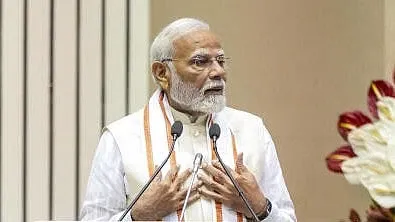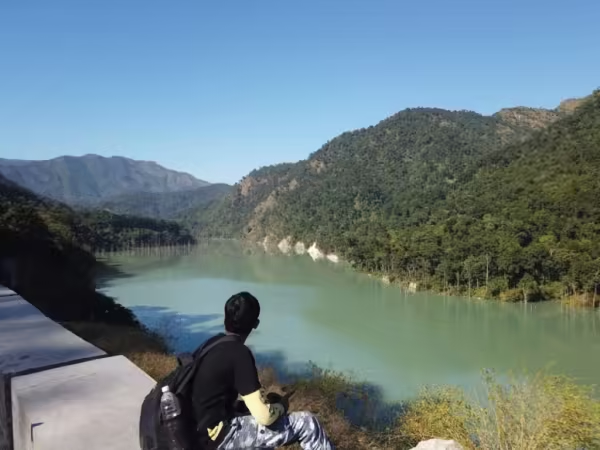Not just one man: When the whole team fails the nation
admin | June 30, 2025 9:22 AM CST

As a nation, we're obsessed with personalities-ranking prime ministers, idolising leaders, and turning governance into a popularity contest.
But we forget: governance is not a solo act. It's a team sport. And in this sport, the opening batters - the ministries of home, defence, finance, and external affairs - carry the burden of India's innings. Over the past 11 years, under Prime Minister Narendra Modi's historic mandate, India did not get a dream team; it got a one-man show propped up by loyalists.
The Union home minister is expected to have a deep understanding of India's diverse heartbeat. But when someone trivialises Ambedkar as "fashion", it becomes clear they are out of touch with the India Ambedkar fought for. The Northeast is in flames. Manipur, which should have been handled with urgency and empathy, was allowed to descend into chaos. In Jammu and Kashmir, post the abrogation of Article 370, peace and normalcy remain elusive-five years without an elected government, repeated Internet shutdowns, and the eerie silence of a gagged press. Perhaps this is the "Modified India" we were promised. The home minister boasts that India now enters the homes of terrorists that attack us. But why are these attacks happening in the first place? Is it not a failure of governance? Who is accountable?
In a country as diverse as ours, unity must be nurtured with care. Yet hate speech remains the fuel that powers BJP's politics. Expecting the home minister to act against it is wishful thinking. Even websites run by citizens to track hate speech have been blocked by this government.
But let's be fair - his tenure hasn't been without successes. He has shown remarkable success in celebrating Hindi Divas and promoting linguistic hegemony. If only national integration and internal security received the same enthusiasm.
When it comes to the economy, this government always has a ready list of scapegoats: the pandemic, global headwinds, and wars abroad. But it has plundered something entirely within its control-the goods and services tax (GST). A reform that was meant to simplify tax and unify the market has become a bureaucratic maze. Its complex compliance regime has crushed the very MSMEs it promised to empower.
As a former bureaucrat and now an elected representative, I believe our first duty is to listen to citizens. Governance without feedback is arrogance dressed as authority. When policies make it harder for citizens to run their businesses, they have every right to express frustration. Sometimes, that frustration comes in the form of humour. When a hotelier joked about the complexity of GST, it wasn't an insult. It was feedback. A people's finance minister would have responded with open meetings and honest dialogue. Instead, we saw a private meeting for an apology.
The working style of this government is simple: if a goal cannot be achieved, change the way it is measured - and then declare it achieved. When GDP growth figures refused to match the levels seen during Dr Manmohan Singh's tenure, the solution was not to improve performance but to change the formula. And just like that, growth was back on track. Headlines burst with excitement, graphs went up, and television studios found a new reason to celebrate. Meanwhile, the people of India have been waiting patiently, not for economic miracles, but for basic needs like jobs, fair wages, and affordable essentials.
As Indians, we take pride in the idea of our country becoming an economic powerhouse - one that grows equitably, narrows income gaps, and uplifts all. But what we see is not a real achievement; it is a well-timed distraction. In May this year, government officials proudly announced that India had become a $4-trillion economy and had overtaken Japan. They cited figures from the International Monetary Fund. It sounded like a historic moment until one read the report. It turns out the number is a future estimate for the year 2025-2026. Not a current reality, but a forecast being paraded as fact.
This is not an isolated incident. It is a pattern. Future targets are announced as present triumphs. Aspirations are dressed up as accomplishments. The GDP figure may look impressive in a headline, but it does not guarantee that citizens are eating well, earning better, or living with dignity.
And what of defence, the most sacred responsibility of a sovereign State? The record is more worrying than reassuring. The 2016 Uri attack, the 2019 Pulwama tragedy, and the 2020 Galwan Valley clash, where 20 Indian soldiers lost their lives in the most brutal border conflict in over four decades. The government's response? Not clarity. Not accountability. But denial. The PM declared that "no one entered Indian territory," even as satellite images, international agencies, and military veterans said otherwise. The story is no different after the Pahalgam attack. We learnt of aircraft losses during Operation Sindoor, not from official briefings, but from the Chief of Defence Staff's overseas media interview. Is that how a responsible government communicates with its citizens?
The Ministry of External Affairs has been led by one of the sharpest voices in government. But behind the crisp diction and viral comebacks lies a worrisome void. When tensions flared with Pakistan, not a single major power stood beside India. Even Russia, our so-called time-tested ally, chose silence. Nepal, Sri Lanka, and the Maldives, once within our embrace, are now in China's orbit. Even in the Global South, our moral authority is fraying. On issues like Gaza, climate action, and humanitarian crises, our positions are either ambiguous or absent. We no longer speak for the vulnerable. We just speak about ourselves.
In Ravana's court, no one dared to question. Vibhishana, the lone voice of reason, was cast out. Today, when this government rewards loyalty over competence and suppresses truth to preserve image, it weakens not just democracy but the very idea of India. We don't need kings and courtiers. We need a team that governs with wisdom, not fear. Eleven years later, it's clear: when the whole team fails, the country suffers. And history will remember not just the captain but the collective that let India down.
READ NEXT
-
Recharge plan prices will soon increase by up to 15%, telecom companies ready

-
Nothing Phone 3 and Headphone 1 India Launch Tomorrow; Check Expected Specs, Price and Other Details | Technology news

-
England got a big shock before the second match against India, ICC took action. ICC Fines England for Slow Over Rate | Newzshort

-
SIT investigation of South Calcutta Law College rape disclosure, three accused had already kept the attack on the student plan, according to the sit investment the Rape of a Student of South Calcutta Law College was planned in advance

-
India’s fastest flowing river, ahead of Ganga and Yamuna in terms of speed – ..
